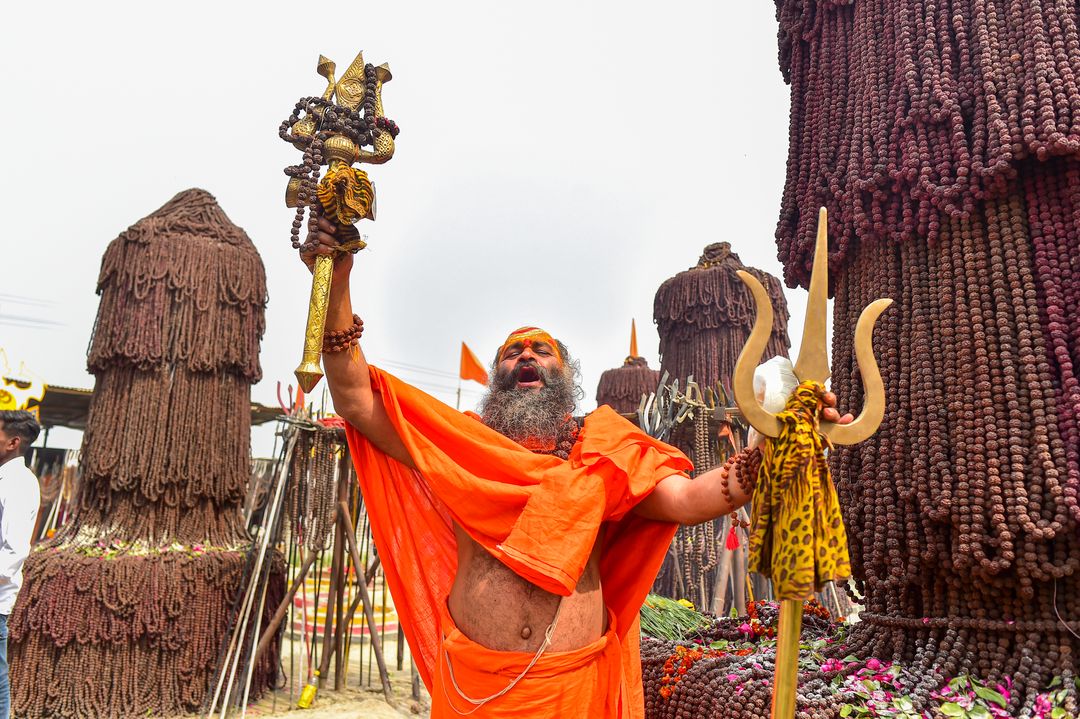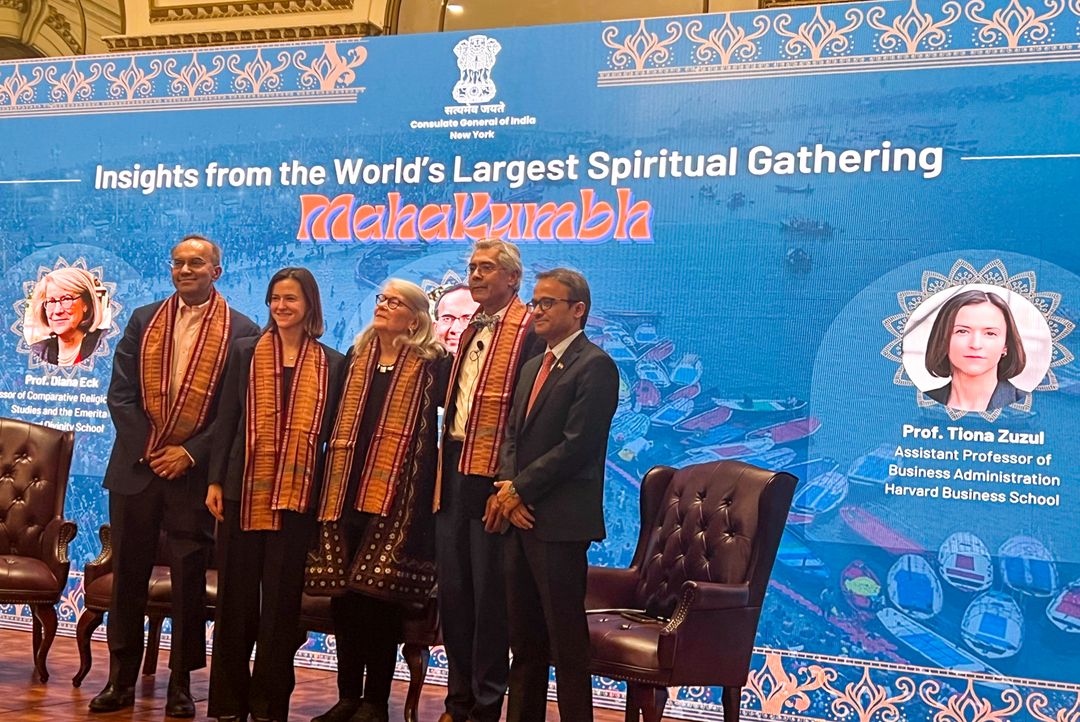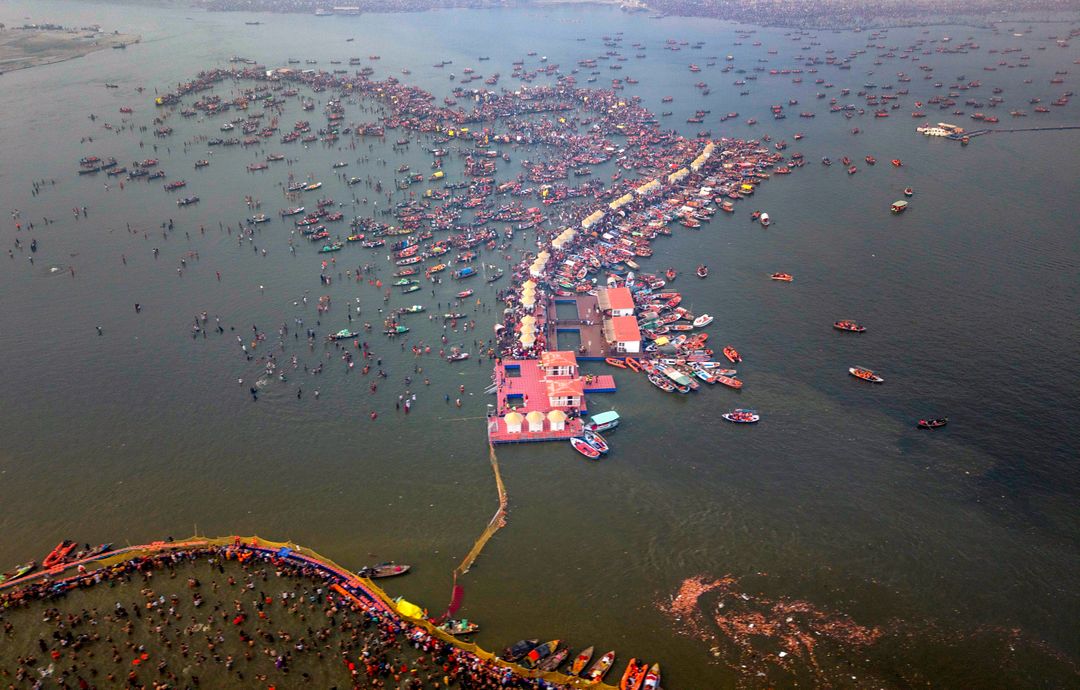
Mahakumbh Nagar, Feb 26 – The grand spectacle of Maha Kumbh, regarded as the world's largest religious congregation, concludes on Wednesday, mirroring its commencement 45 days ago with millions of devotees thronging the sacred confluence of the Ganga, Yamuna, and the mythical Saraswati on the auspicious occasion of Maha Shivratri.
The 2025 edition of this sacred festival witnessed an overwhelming turnout, with the Uttar Pradesh government reporting a staggering 64.77 crore visitors to Prayagraj since January 13—surpassing the population of every nation except China and India. Among the prominent attendees were President Droupadi Murmu, Prime Minister Narendra Modi, top ministers, film stars, and international dignitaries, including Bhutan’s King Jigme Khesar Namgyel Wangchuck.
Faith, Spirituality, and Technology Blend in a Grand Affair
The Maha Kumbh once again served as a confluence of faith, spirituality, and tradition, drawing sadhus, saints, and pilgrims from around the world. This year, celestial alignments, occurring once every 144 years, added to the spiritual fervor. Alongside ancient rituals, the event also saw the integration of modern technology, including AI-enabled surveillance and anti-drone systems, ensuring security across the 40-hectare temporary township of Mahakumbh Nagar.Despite meticulous planning, the event was marred by a tragic stampede on January 29 during the second ‘Amrit Snan’ on Mauni Amavasya, which claimed at least 30 lives. The incident fueled political debates, with opposition leaders questioning the handling of the crowd and alleging discrepancies in the death toll. The controversy was further heightened when West Bengal Chief Minister Mamata Banerjee labeled it as ‘Mrityu Kumbh.’
The Sacred Dip and Water Quality Concerns
For devout Hindus, the ritualistic dip in the holy waters is believed to wash away sins and grant salvation. The six major bathing dates, or ‘snans,’ witnessed record participation, with lakhs taking a holy plunge at the Sangam. However, the purity of the river waters became a subject of contention, with a Central Pollution Control Board report raising concerns over high levels of faecal bacteria and total coliform. Chief Minister Yogi Adityanath dismissed these claims, asserting in the state assembly that the Ganga water was fit for both "snan and aachman" (bathing and ritual drinking).Massive Security Arrangements and Fire Incidents
The event saw an unparalleled security deployment, with 37,000 police personnel, 14,000 home guards, 2,750 AI-based CCTVs, 60,000 personnel on the ground, and 50 fire stations on high alert. Fire incidents were reported at multiple locations, but prompt action ensured no casualties. Underwater drones capable of diving up to 100 meters were deployed for round-the-clock surveillance, a first for the event.The Spectacle of Akharas and Celebrities
The Maha Kumbh featured grand processions by various akharas, including the ash-smeared Naga sadhus and modern tech-savvy saints. Several high-profile visitors, including business magnates Mukesh Ambani and Gautam Adani, and celebrities like Laura Powell, widow of Apple founder Steve Jobs, and Coldplay’s Chris Martin, made their way to Prayagraj to experience the spiritual gathering.The event also saw controversy with actor-turned-sadhvi Mamta Kulkarni, who was anointed as a ‘mahamandaleshwar’ of the Kinnar Akhara before resigning amid objections from some seers. Other social media influencers and unconventional spiritual figures, including 'IIT Baba' Abhay Singh and ‘Sadhvi’ Harsha Richhariya, gained attention.
A Spiritual Journey Beyond Controversies
As the sun sets on this year’s Maha Kumbh, the event stands as a testament to India's deep-rooted spiritual traditions, where millions braved logistical challenges to seek divine blessings. For many devotees, the Maha Kumbh truly ends only when the last pilgrim takes the sacred dip—a culmination of faith that transcends politics, controversies, and modern complexities.The next Maha Kumbh, set to take place in 2037, will once again witness the timeless dance of devotion, faith, and tradition along the banks of the Sangam.

